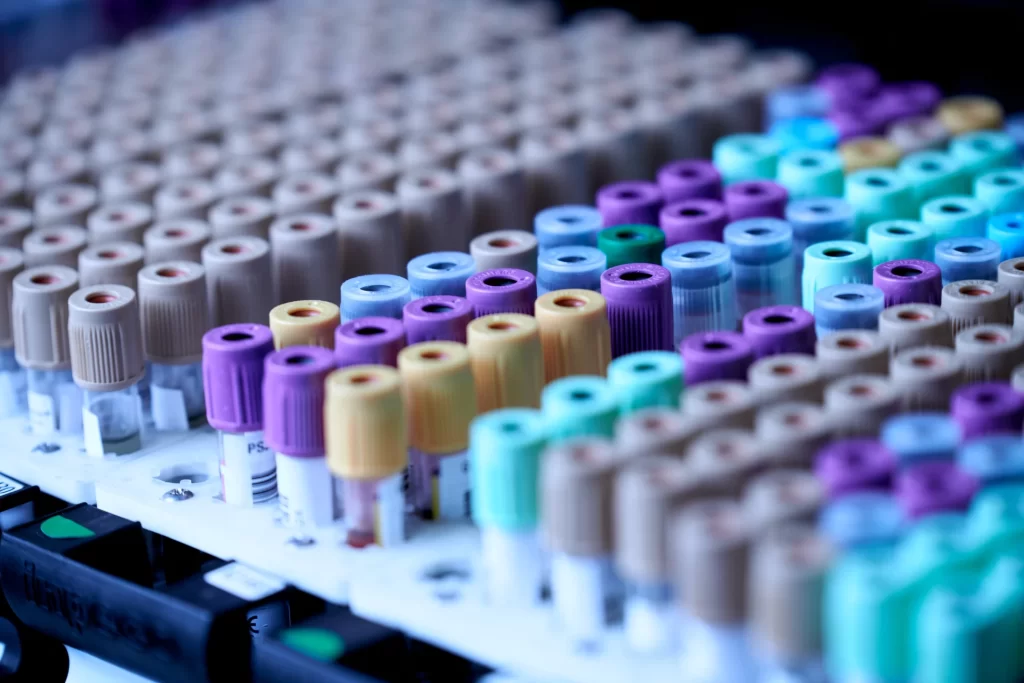
Peptide libraries are a cornerstone in the field of biochemical research, offering a versatile tool for various applications ranging from drug discovery to therapeutic development. Understanding the utility and benefits of peptide libraries can significantly enhance research outcomes in these areas.
Key Takeaways:
- Peptide libraries provide a diverse range of peptide sequences for high-throughput screening.
- They are essential in drug discovery, epitope mapping, and studying protein-protein interactions.
- Peptide libraries facilitate the identification of bioactive peptides and optimization of peptide-based therapeutics.
What is a Peptide Library?
A peptide library is a collection of peptides with a systematic variation of amino acid sequences. It is used to study a wide range of biochemical and pharmaceutical properties.
Types of Peptide Libraries
Peptide libraries can be random, overlapping, positional, or alanine-scanned, each serving different research purposes.
Applications of Peptide Libraries
Drug Discovery
Peptide libraries are instrumental in identifying and optimizing new drug candidates, particularly in targeting specific proteins or receptors.
Vaccine Development
They are used to identify peptide sequences that can elicit an immune response, aiding in the design of effective vaccines.
Advantages of Using Peptide Libraries
High-Throughput Screening
Peptide libraries allow for the simultaneous screening of thousands of peptides, significantly speeding up the research process.
Versatility
They can be customized to include a wide range of modifications, such as phosphorylation, methylation, and cyclization.

Designing a Peptide Library
Selection of Amino Acids
The choice of amino acids in a peptide library is crucial and depends on the specific research objective.
Library Size and Diversity
The size and diversity of a peptide library determine its effectiveness in screening and identifying active peptides.
Explore LifeTein’s Custom Peptide Synthesis Services for more on designing peptide libraries.
Peptide Library in Research and Development
Epitope Mapping
Peptide libraries are used to identify the specific parts of antigens that are recognized by antibodies, crucial for vaccine development and diagnostic assays.
Protein-Protein Interactions
They enable the study of protein-protein interactions, which is essential in understanding cellular processes and identifying therapeutic targets.
Technological Advances in Peptide Libraries
High-Throughput Synthesis
Modern peptide libraries are synthesized using advanced technologies, allowing for rapid production of large numbers of peptides.
Customization
Peptide libraries can be customized to include specific sequences, modifications, and lengths tailored to the unique requirements of a research project.
Advanced Synthesis Techniques
Modern synthesis techniques, such as continuous-flow peptide synthesis, enable the efficient and high-quality production of peptide libraries.
Discover more about advanced synthesis techniques at LifeTein’s Peptide Library Service.
Challenges and Solutions in Peptide Library Utilization
Managing Complexity
The complexity of peptide libraries can be challenging, but advanced computational tools and algorithms are available to manage and analyze the vast data generated.
Quality Control
Ensuring the quality and purity of peptides in a library is crucial. Techniques like HPLC and mass spectrometry are employed for stringent quality control.
Frequently Asked Questions
- What is the main advantage of using a peptide library?
- The main advantage is the ability to screen a vast number of peptides simultaneously for various biochemical properties.
- Can peptide libraries be used in personalized medicine?
- Yes, peptide libraries can be used to identify peptide-based therapeutics tailored to individual genetic profiles.
- How are peptide libraries synthesized?
- They are synthesized using methods like solid-phase peptide synthesis, allowing for the incorporation of diverse amino acids and modifications.
In summary, peptide libraries are invaluable tools in modern scientific research, offering unparalleled opportunities for discovery and innovation in various fields. Their ability to screen a vast array of peptide sequences rapidly makes them indispensable in drug discovery, vaccine development, and the study of protein interactions. With the advancement of synthesis technologies and analytical tools, the potential of peptide libraries continues to expand, paving the way for new breakthroughs in science and medicine.
